- Low Maintenance
- Efficient Design
- Easy to Operate

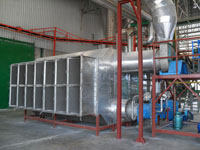
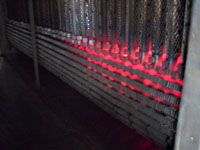
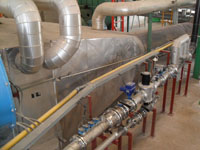

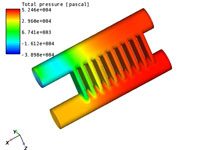
Radiant Tube Burner Systems
Radiant tube burners are better than boilers or thermal oil heaters in some applications.
There are many applications in the industry that demand steam, such as power plant generators and food processing factories. Many factories are using steam generators for transferring heat to heat exchangers or radiators.
Figure 1: Boiler diagram for heat exchanging
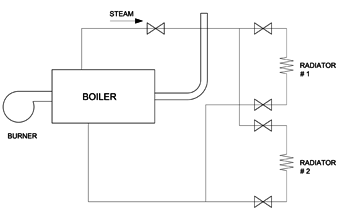
There is an alternative investment with lower cost and higher efficiency. It is a radiant tube burner where the burners fire inside radiators or radiant tubes.
This kind of heat exchanger need to be designed accordingly to applications such as drying systems that need to heat up fresh air and feed it to the drying chamber which we have to engineer by calculating the amount of heat to be added to the air which requires combustion and heat transfer technology.
Figure 2: Radiant Tube Burner Diagram
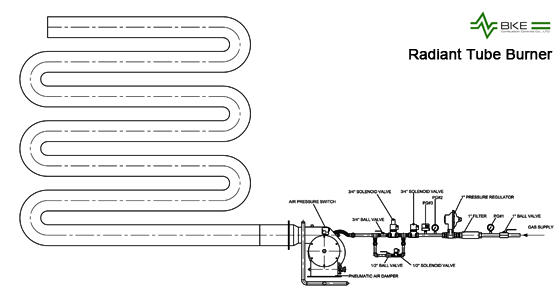
Radiant tube burners offer significant advantages over boiler systems, such as:
- Lower investment cost
- Ease of operation
- Low maintenance
- High efficiency
- Reduced factory footprint
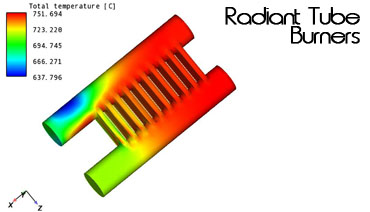
| Boiler vs. Radiant Tube Burner | |||
| Boiler | Radiant-Tube Burner | ||
| Initial Investment: |
|
20-50% savings vs. boiler | |
|
N/A | ||
|
Uses less space because heating and piping is integrated into a single unit | ||
|
N/A | ||
| Operation: | Excess fuel consumption due to heat loss caused by extended piping | N/A | |
| Chemicals required for water treatment | N/A | ||
| Make-up water required due to system loss | N/A | ||
Maintenance & Repair |
System clean-up required on a quarterly basis | System clean-up annually but less man-hours required | |
| High annual inspection cost due to specialized machines and highly-trained inspectors | Only visual inspection required annually | ||
| Many spare parts need to be kept in inventory and changed on an annual basis | Spare parts requirements are significantly lower due to simpler and more efficient design | ||
















